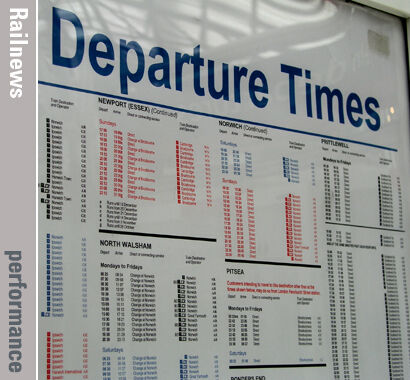Transport secretary Louise Haigh has sounded a warning to the railway industry, saying that performance ‘improvements that can be made now must be made now’, and that the level of performance must be communicated to passengers more effectively by using station screens.
She told MPs that performance is starting to improve, hailing ‘green shoots’ on LNER, where the number of cancellations has been falling.
She also highlighted the new ‘five-point plan’ for overcrowded London Euston, where more trains are being advertised twenty minutes before departure, reducing the need for the ‘Euston dash’ down the ramps from the concourse to the platforms.
She continued: ‘Platform announcements are made earlier, crowding has been reduced and, yes, the advertising screen has been temporarily switched off.’
She promised ‘tangible improvements’ on Northern: ‘Thanks to our agreement on rest day working, hundreds more driver shifts have been covered this weekend, cutting cancellations now and in the long run. At TransPennine Express, operator-caused, on-the-day cancellations averaged around 2 per cent in the last year, compared to 5 per cent in the year before it was taken into public ownership. On CrossCountry, we took immediate steps to implement a remedial plan to reduce its cancellations and get services back on track. Its reduced timetable has brought greater stability, and I expect even greater reliability in the long term as the full timetable returns today.
‘We will be fully transparent with passengers by displaying performance data at stations to demonstrate how the railway is working and to allow the public to hold us to account as we deliver change. That is important, because the railway is a promise—a promise to passengers from the moment they buy a ticket that the train will arrive on time, as the timetable says.’
Shadow transport secretary Gareth Bacon responded: ‘I agree that rail performance is a key concern to passengers throughout the country, and it is a fair criticism to say that several operators have consistently underperformed. That is why, when we were in government, we took action to improve performance on our railways, investing more than £100 billion.
‘We know that while in some cases it has been necessary in the short term to bring rail operators into public control, it has not made the difference in performance that the Government would have us believe. It takes only a cursory glance at passenger rail performance statistics to see that some of the rail operators operating under public control have done little or nothing to improve cancellations or delays in relation to other operators.’


